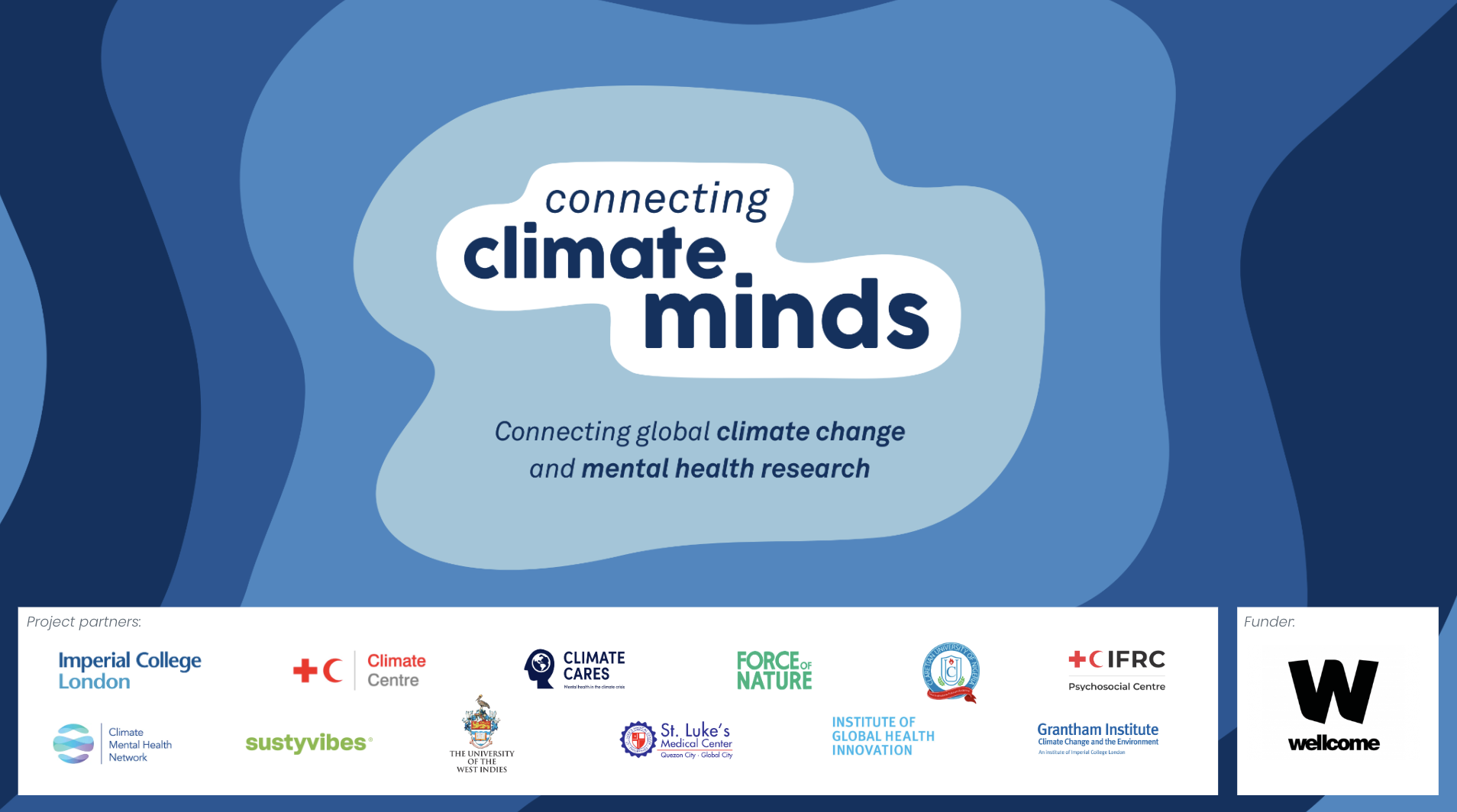
What is Connecting Climate Minds all about?
The short answer: Connection. Connecting Climate Minds is working to foster connections between people all over the world to come together to understand and respond to the deep interconnections between climate change and mental health.
To facilitate collaboration across disciplines and sectors, we are establishing Communities of Practice in the seven Sustainable Development Goal (SDG) regions. Once established, we will run a series of open dialogues and work collectively to create an inclusive agenda for research and action that safeguards mental health in a changing climate and catalyses more effective and co-beneficial climate action.
We are working in service to those already experiencing the mental health challenges of the climate crisis and to the growing mental health and climate community increasingly coming together to understand and act on these effects. The project will include and learn from people already living with the impacts of the climate crisis on their mental health, and their unique wisdom and insights based on their personal experiences of challenge and of resilience. By cultivating connection and creating an aligned agenda, together we can accelerate these efforts and address current challenges to progress.
What is our vision for this project?
In this year-long project, we want the climate and mental health community to become more connected, with shared understandings and visions across diverse disciplines. We envision a thriving global eco-system across people working in climate and in mental health, better equipped to respond to emerging challenges and opportunities at this vital intersection of two of our greatest global crises.
Working inclusively and together, at both the regional and global levels, we have two key goals:
1) An ambitious and inclusive agenda for research priorities. This will guide the field to provide evidence needed for policy and practice to safeguard mental health while enabling climate action, deeply grounded in the needs of people with lived experience.
2) A connected, supported and engaged community of practice with the right tools to enact this agenda, including greater knowledge sharing.
What will we be doing?
7 Regional Communities of Practice, led by Regional Community Convenors, with the regional teams also including Co-Convenors, Lived Experience Advisory Groups and Youth Ambassadors, bringing together the climate and mental health communities in research, practice and lived experience in each SDG region.
2 Regional Dialogues in each of the 7 SDG regions bringing together stakeholders across different relevant research disciplines, policy, healthcare, climate action and lived experience, to identify emerging needs, opportunities, and research priorities for their region and foster communities of practice.
3 Global Dialogues by and for communities with particular climate vulnerabilities: youth, Indigenous communities and smallholder farming communities.
Global Convening to share, refine and endorse regional and global research and action agendas, and identify opportunities to support sustainability of the work going forward.
A Global Online Hub as the “go to” space for climate change and mental health resources.
Academic and non-academic outputs to share insights developed through the project and provide actionable and accessible resources to help enact the research and action agenda.
How are climate change and mental health connected?
The interconnections between climate change and mental health are many and varied. This can manifest in different ways, such as post-traumatic stress disorder for people running from a wildfire, emergency rooms seeing more people with mental and physical distress during heatwaves, farmers dying by suicide after another year of drought, children who are exposed to polluted air being more at risk of developing schizophrenia, climate scientists and activists experiencing existential despair, or Indigenous communities experiencing the profound grief of their cultures and livelihoods from the changing climate in an extension of colonialism.
While there is a lot we know, and certainly enough to know that the mental health challenges of the climate crisis must be understood and acted on, there is still much we don't know. Interventions are emerging but have not been evaluated; there are still very limited mental health metrics included in work to monitor the health impacts of climate change, or the benefits of climate action; there are some regions of the world where there is almost no data available (e.g. South America), but we know lack of data doesn't mean there are not many people already living with and responding to these challenges.
If you are interested in reading more we suggest the following literature:
Lawrance et al 2021, The impact of climate change on mental health and emotional wellbeing: current evidence and implications for policy and practice, IGHI & Grantham Briefing Paper
Diffey et al 2022, Not about us without us - the feelings and hopes of young people around the world in the climate crisis, International Review of Psychiatry
Li et al 2022, The Role of Mental Health Professionals in the Climate Crisis: An Urgent Call to Action, International Review of Psychiatry
Samuel et al 2022, Reflections of Mental Health Professionals on Working with and in the Climate Crisis, International Review of Psychiatry
Lawrance et al 2022, The Impact of Climate Change on Mental Health and Emotional Wellbeing: A Narrative Review of Current Evidence, and its Implications, International Review of Psychiatry
Thompson* & Lawrance* et al 2023, Ambient temperature and mental health: a systematic review and meta-analysis, Lancet Planetary Health
World Health Organization, 2022, Mental health and Climate Change: Policy Brief
Charlson F et al. 2021. Climate Change and Mental Health: A Scoping Review
What can we learn from our feelings about climate change? Blog by Climate Cares
Where is the climate and mental health field now?
While some work has been happening on the impact of climate change on mental health for over a decade, historically these links have been under-appreciated in research, policy and practice. However, this picture is quickly changing. Awareness and understanding of the impact of climate change on mental health has grown in recent years in research and policy:
2007: first academic paper explicitly mentioning climate change and mental health is published
2018: Lancet Commission for Global Mental Health and Sustainable Development notes that climate change threatens work towards creating an environment that fosters mental health and wellbeing for all
2021: a total of 120 academic papers have been published explicitly on climate change and mental health since 2007
2021: UN climate conference (COP26) has its first official side event on climate change and mental health
2022: in this year alone, 358 academic papers on climate change and mental health were published
2022: World Health Organization publishes a policy brief in 2022 calling for action by different stakeholder groups to address the mental health impacts of the climate crisis
2022/2023: Intergovernmental Panel of Climate Change (IPCC) included mental health impacts in its reports for the first time
What challenges are we trying to address?
Even though the climate change and mental health field is growing quickly, key challenges are holding back progress.
Disconnections across sectors, disciplines and regions (e.g. between climate adaptation experts and global mental health experts, or between experts in the global South and the global North) is a barrier to working together and learning from each other.
Certain topics, countries and disciplines dominate an uneven landscape, leaving critical gaps in understanding (e.g. no research on the mental health impacts of temperature across all of South America).
Decisions about climate change and mental health are made in silos, meaning it is more difficult for things like joined-up policy action and funding to happen that has win-wins (or co-benefits) for both climate change and mental health.

Connecting Climate Minds Hub
Join our new digital platform, designed to unite the fields of mental health and climate change. The hub aims to foster understanding, encourage interdisciplinary collaboration and drive impactful action, all while providing a supportive community for those dedicated to these critical issues.





